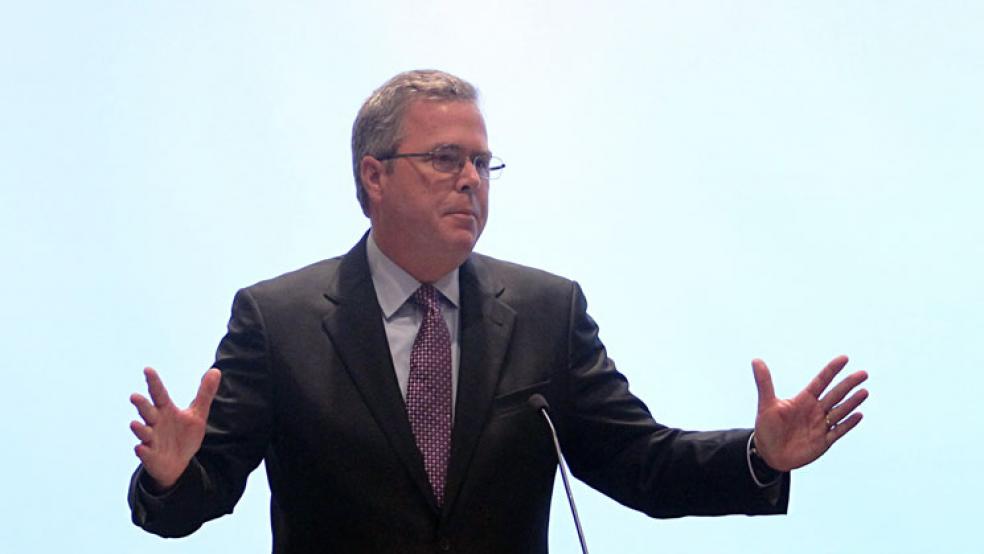Republican Jeb Bush on Tuesday released emails from his time as Florida governor ahead of a visit to the state capital to raise money and showcase education reforms he started in an effort to burnish his credentials as he eyes a presidential bid. With a $1,000-per-plate luncheon scheduled at a hotel blocks from the governor's mansion, the trip highlights Bush's strength in the largest U.S. swing state, crucial to the Republican Party's hopes of regaining the White House in 2016.
Bush, considered a front-runner in the crowded field of Republican presidential prospects, is already a household name as the brother of former President George W. Bush and son of former President George H.W. Bush.
Related: Why Jeb Bush Is a Last-Century GOP Candidate
On Tuesday, he released thousands of emails from his time as governor from 1999 to 2007 along with the first chapter of a campaign-style book to show he could connect with constituents at a personal level. "Everyone could email me," he writes. "So they did."
He and his advisers believe that by releasing large chunks of his communications from his time as governor it will show evidence of a chief executive at ease with connecting daily with the people who write to him and responding to their concerns. Early in his tenure Bush made public his email address, jeb@jeb.org, and encouraged people to write to him. In the first chapter of an ebook he is to release, he said he spent 30 hours a week answering emails, earning the nickname "the eGovernor."
Unlike many Republicans at this early stage of the nomination drive, Bush is not running to the conservative right but presenting himself as a mainstream alternative, seeking to expand the scope of the party and appeal to independent voters.
Bush also plans to talk about education policy at a school reform conference hosted by his Foundation for Florida's Future. The current Republican governor, Rick Scott, will also speak.
Related: Jeb Bush: 10 Things You Should Know About Him
Last month, Bush launched the "Right to Rise" political action committee to raise money as he explores a campaign. But as he travels the country, he has faced skepticism from the most conservative wing of his party, which is wary of his support for the "Common Core" national academic standards.
Standardized testing was at the center of the education reforms Bush championed as governor.
He also promoted charter schools, which are publicly funded but often run by private corporations, and instituted a voucher program to let students in failing public schools enroll in private and religious schools at taxpayer expense.
The voucher plan failed in court but was replaced by a program of corporate tax deductions for companies making private tuition grants for students, now also being challenged in court by teachers unions and other critics.




